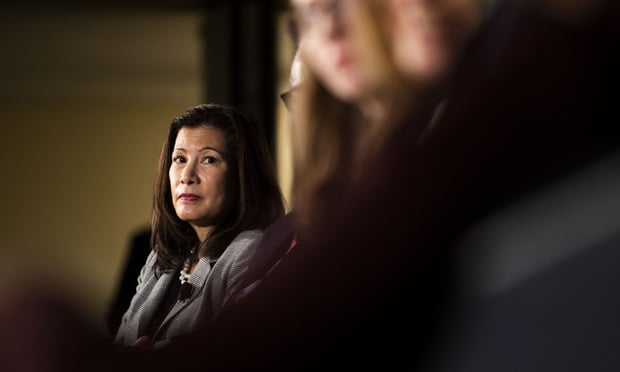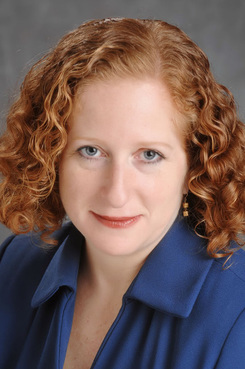Court Mum on Reasons Behind Unexpected Decision to Lower Bar Exam Score
A 2017 study by the state bar found that lowering the cut score to 139 on the July 2016 exam would have resulted in hundreds of additional applicants passing.
July 17, 2020 at 06:44 PM
5 minute read
 Tani Cantil-Sakauye, chief justice of California. (Photo: Diego M. Radzinschi / ALM)
Tani Cantil-Sakauye, chief justice of California. (Photo: Diego M. Radzinschi / ALM)
While announcing the fate of the fall bar exam on Thursday, the California Supreme Court blindsided just about everyone with related news: Justices would drop the passing score on the exam from 144 to 139—immediately and permanently.
The decision marked a sea change for a court that for years resisted calls to lower the second-highest-in-the-nation cut score, even as the pass rate slumped to historic lows twice between 2018 and 2020. Justices said repeatedly they wanted more studies and solid evidence that a score change was warranted.
In a letter to state bar leaders Thursday, the court's clerk referenced the lower score order only briefly, citing "consideration of the fact that California is one of two states with the highest pass score for its minimum competency exam, and based on findings from recently completed bar examination studies as well as data from ongoing studies."
Justices on Friday declined through a spokesman to talk about what inspired their decision.
"In a crisis, people get out of their business-as-usual mode," Assemblyman Mark Stone, chair of the Judiciary Committee, told The Recorder on Friday about the court's decision. "I'm really happy they saw the opportunity to do what they did in this environment."
Stone and several lawmakers sent a letter to the court in June, pleading for a lower exam score. They noted the abysmal 26.8% pass rate on the February exam as well as the gaping success-rate gap between whites who took the test and African Americans, Asian Americans and Latinos.
A 2017 study by the state bar found that lowering the cut score to 139 on the July 2016 exam would have resulted in hundreds of additional applicants passing, and it would have raised the success rate substantially among racial minorities.
Stone said he didn't know in advance that the court would lower the score to a figure just slightly higher than what the letter-writers had sought. "I'm just happy that they made the decision," he said.
 Jennifer Mnookin (Courtesy photo)
Jennifer Mnookin (Courtesy photo)Jennifer Mnookin, dean of UCLA School of Law, credited a "confluence of events," including the pandemic, a public "racial reckoning" and a bad run of recent bar exam pass rates for the court's action. Justices appeared well informed on issues surrounding California's high cut score in a meeting with law school deans several months ago, Mnookin said.
"It's clear that they've been paying close attention and it's something that's obviously been on their minds," she said.
Deans and law school graduates were still sorting through the details of the high court's announcement on Thursday, which also included authorization of an October online exam and a provisional licensing program through 2022.
Although several deans said they were generally pleased with the package of changes, some graduates remain unhappy the court did not grant permanent diploma privilege, the ability to practice law without having taken and passing the exam.
UC Berkeley School of Law Dean Erwin Chemerinsky said that he had heard from just a few students by Friday afternoon.
"Most of all, they are relieved that the decision has been made," he said in an email. "The students I have heard from seem to be planning for the October bar exam."
"I applaud the decision of the California Supreme Court," the dean said. "I think it's a three-part approach—online exam in October, lowering the cuts core, and provisional licenses—that recognizes the unique situation and the needs of our graduates."
In the coming months, the state bar will release details about how the bar exam will be administered online and how the provisional licensing program will work. Mnookin said she received confirmation from bar officials Friday that students who plan to take the October exam can concurrently apply for the temporary license.
Questions remain, too, about what kind of supervision will be required for provisional licensees and whether enough work opportunities will exist for potentially thousands of law school graduates.
Stone said Chief Justice Tani Cantil-Sakauye has mentioned trying to tap some state pandemic-relief money to fund licensees' work on landlord-tenant disputes and other legal issues driven by closures.
"It would also have the added benefit of getting people used to working in the legal services realm," Stone said.
Read more:
'This Is Not Practical': Loyola Professor Reacts to California Bar Exam Decision
California Sets Online Bar Exam for October, Permanently Lowers Passing Score
It's Time to Replace the California Bar Exam
Law School Deans Lobby California Court for Diploma Privilege in Virus Era
How Law Schools Fared on the February 2020 Bar Exam
California Bar Exam Pass Rates Drop to All-Time Low 26.8% on February Test
This content has been archived. It is available through our partners, LexisNexis® and Bloomberg Law.
To view this content, please continue to their sites.
Not a Lexis Subscriber?
Subscribe Now
Not a Bloomberg Law Subscriber?
Subscribe Now
NOT FOR REPRINT
© 2025 ALM Global, LLC, All Rights Reserved. Request academic re-use from www.copyright.com. All other uses, submit a request to [email protected]. For more information visit Asset & Logo Licensing.
You Might Like
View All


DOJ, 10 State AGs File Amended Antitrust Complaint Against RealPage and Big Landlords
4 minute read
ExxonMobil Sues California AG Bonta, Environmental Groups for Advanced Recycling 'Smear Campaign'
Trending Stories
Who Got The Work
Michael G. Bongiorno, Andrew Scott Dulberg and Elizabeth E. Driscoll from Wilmer Cutler Pickering Hale and Dorr have stepped in to represent Symbotic Inc., an A.I.-enabled technology platform that focuses on increasing supply chain efficiency, and other defendants in a pending shareholder derivative lawsuit. The case, filed Oct. 2 in Massachusetts District Court by the Brown Law Firm on behalf of Stephen Austen, accuses certain officers and directors of misleading investors in regard to Symbotic's potential for margin growth by failing to disclose that the company was not equipped to timely deploy its systems or manage expenses through project delays. The case, assigned to U.S. District Judge Nathaniel M. Gorton, is 1:24-cv-12522, Austen v. Cohen et al.
Who Got The Work
Edmund Polubinski and Marie Killmond of Davis Polk & Wardwell have entered appearances for data platform software development company MongoDB and other defendants in a pending shareholder derivative lawsuit. The action, filed Oct. 7 in New York Southern District Court by the Brown Law Firm, accuses the company's directors and/or officers of falsely expressing confidence in the company’s restructuring of its sales incentive plan and downplaying the severity of decreases in its upfront commitments. The case is 1:24-cv-07594, Roy v. Ittycheria et al.
Who Got The Work
Amy O. Bruchs and Kurt F. Ellison of Michael Best & Friedrich have entered appearances for Epic Systems Corp. in a pending employment discrimination lawsuit. The suit was filed Sept. 7 in Wisconsin Western District Court by Levine Eisberner LLC and Siri & Glimstad on behalf of a project manager who claims that he was wrongfully terminated after applying for a religious exemption to the defendant's COVID-19 vaccine mandate. The case, assigned to U.S. Magistrate Judge Anita Marie Boor, is 3:24-cv-00630, Secker, Nathan v. Epic Systems Corporation.
Who Got The Work
David X. Sullivan, Thomas J. Finn and Gregory A. Hall from McCarter & English have entered appearances for Sunrun Installation Services in a pending civil rights lawsuit. The complaint was filed Sept. 4 in Connecticut District Court by attorney Robert M. Berke on behalf of former employee George Edward Steins, who was arrested and charged with employing an unregistered home improvement salesperson. The complaint alleges that had Sunrun informed the Connecticut Department of Consumer Protection that the plaintiff's employment had ended in 2017 and that he no longer held Sunrun's home improvement contractor license, he would not have been hit with charges, which were dismissed in May 2024. The case, assigned to U.S. District Judge Jeffrey A. Meyer, is 3:24-cv-01423, Steins v. Sunrun, Inc. et al.
Who Got The Work
Greenberg Traurig shareholder Joshua L. Raskin has entered an appearance for boohoo.com UK Ltd. in a pending patent infringement lawsuit. The suit, filed Sept. 3 in Texas Eastern District Court by Rozier Hardt McDonough on behalf of Alto Dynamics, asserts five patents related to an online shopping platform. The case, assigned to U.S. District Judge Rodney Gilstrap, is 2:24-cv-00719, Alto Dynamics, LLC v. boohoo.com UK Limited.
Featured Firms
Law Offices of Gary Martin Hays & Associates, P.C.
(470) 294-1674
Law Offices of Mark E. Salomone
(857) 444-6468
Smith & Hassler
(713) 739-1250






